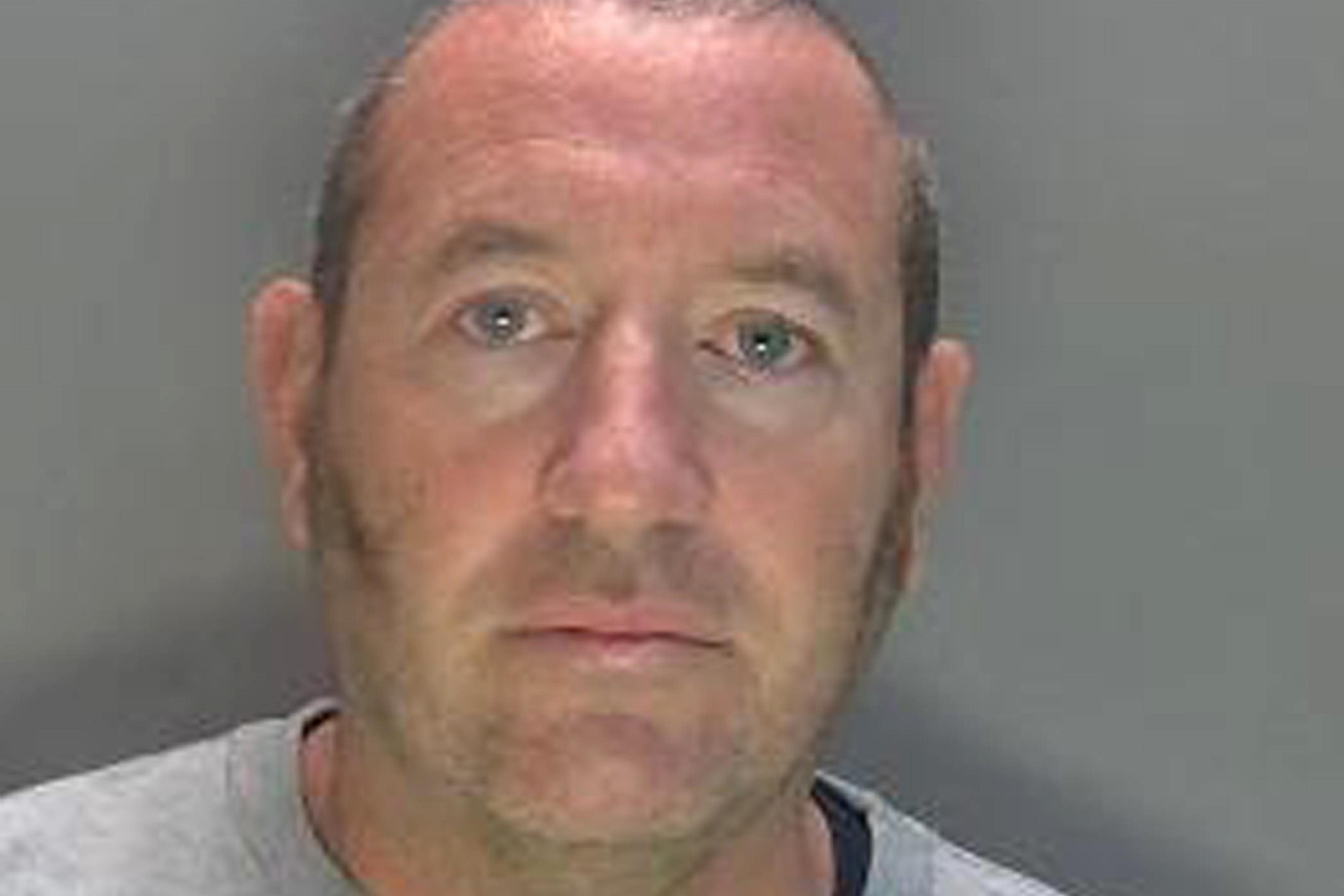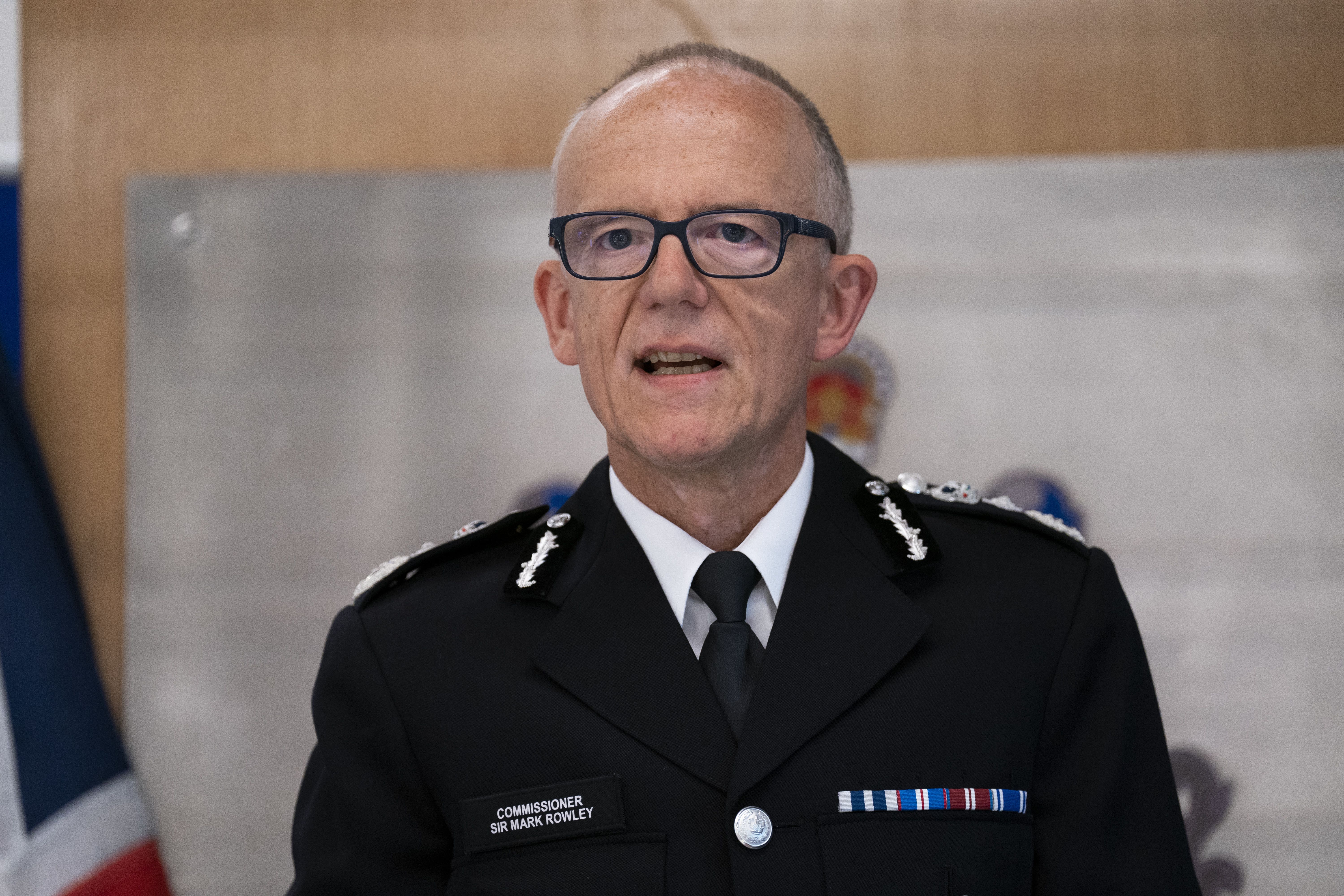Shame of the Met: Demand for answers from police force as officer revealed as one of UK’s worst serial rapists
‘We have failed,’ commissioner admits after decades of missed opportunities to stop predator
Your support helps us to tell the story
From reproductive rights to climate change to Big Tech, The Independent is on the ground when the story is developing. Whether it's investigating the financials of Elon Musk's pro-Trump PAC or producing our latest documentary, 'The A Word', which shines a light on the American women fighting for reproductive rights, we know how important it is to parse out the facts from the messaging.
At such a critical moment in US history, we need reporters on the ground. Your donation allows us to keep sending journalists to speak to both sides of the story.
The Independent is trusted by Americans across the entire political spectrum. And unlike many other quality news outlets, we choose not to lock Americans out of our reporting and analysis with paywalls. We believe quality journalism should be available to everyone, paid for by those who can afford it.
Your support makes all the difference.The Metropolitan Police is facing demands for answers after one of its officers was revealed to be a serial rapist.
David Carrick admitted 49 charges relating to 71 sexual offences including 24 rapes against 12 women, making him one of the worst serial rapists in the UK. The crimes happened between 2003 and 2020 after he was left free to abuse victims for two decades despite the alarm being raised several times.
All the crimes, which included patterns of sadistic and degrading abuse, were committed while he was a serving officer in Britain’s largest police force.
London mayor Sadiq Khan said he was “sickened and appalled” by the case, adding: “Londoners will be rightly shocked that this man was able to work for the Met for so long and serious questions must be answered about how he was able to abuse his position as an officer in this horrendous manner.”
Commissioner Sir Mark Rowley apologised to Carrick’s victims and vowed to reform the Met Police “at speed”, admitting: “We have failed and I'm sorry. He should not have been a police officer.”
After Carrick pleaded guilty, Scotland Yard revealed that more than 1,000 serving officers and staff were subject to past allegations of sex offences and domestic abuse – but warned that most would stay in post.
The force launched a review of cases that did not result in criminal prosecution or dismissals, codenamed Operation Onyx, after discovering Carrick had been allowed to remain in uniform even after the Met was alerted to reports of rape and domestic abuse.
It has so far uncovered 1,633 cases, involving 1,071 officers and staff, but Scotland Yard said being flagged by the probe was “not in itself a finding of wrongdoing or sufficient reason to remove an officer from frontline duties”.
“It is therefore likely that the majority of officers whose involvement in past incidents is being reviewed will not automatically be subject to restrictions,” a spokesperson added.
“There are already a number who are subject to risk management measures and this process is to confirm that these measures are sufficient.
“In the event that information was to emerge from a review that raised concerns then an officer or member of staff’s status would be reconsidered without delay.”
It comes as Suella Braverman, the home secretary, prepares to announce a review of police disciplinary processes, which will ultimately aim to make it easier to sack officers for wrongdoing and misconduct.

“It's clear the standards and culture need to change in policing,” Ms Braverman said.
“That’s why I’m driving forward changes to support the police and chief constables around the country in doing so.”
Sir Mark has called for changes to give chief constables more discretion over who serves in their forces, blaming a multi-stage process for hampering the dismissal of unsuitable officers.
But any such changes are unlikely to have affected Carrick, who served in the Met for 20 years because the force repeatedly decided that he had “no case to answer” for by disciplinary proceedings when it was alerted to incidents of rape, harassment and domestic abuse.
In an article for The Independent, the London victims’ commissioner Claire Waxman called the case “another dark day for victims and the wider public”, warning that it would “undoubtedly impact the confidence of victims, especially of women, reporting to the police”.
Former chief prosecutor Nazir Afzal said authorities must “seize this tragic moment to restore public confidence” by conducting a full judicial inquiry.
Carrick technically remains a Metropolitan Police officer because forces cannot start misconduct hearings when criminal trials are underway, but he is expected to be formally dismissed on Tuesday.
He was first arrested for rape in July 2021, but only had his police firearm removed and was withdrawn from public-facing deployments.
Restrictions were lifted weeks later when the victim, who he has now admitted raping, withdrew from the case and the criminal investigation stopped.

Carrick was arrested for rape a second time and charged in October, with publicity around his prosecution sparking a cascade of reports by previous victims.
Assistant commissioner Barbara Gray, who is responsible for anti-corruption, said an “escalating pattern” of abuse against women was not spotted because the incidents did not result in prosecution.
“The duration and nature of Carrick’s offending is unprecedented in policing and regrettably he is not the only Met officer to be charged with serious sexual offences in the recent past,” she told a press conference.
“Our work to rid the Met of these people is urgent and it is far-reaching. We will continue to be relentless in our pursuit of those who corrupt our integrity.”
Scotland Yard said the 1,000 officers and staff identified in its review had been accused of domestic abuse or sexual offences in the past 10 years.
It did not give a full breakdown, but said the cases “include a very wide range of allegations from verbal arguments and altercations in a domestic or family setting to the most serious sexual offences. It could include cases where no further action was taken and where no criminal allegations were made”.
Baroness Casey, who is conducting a review of the Met’s standards and culture, sparked by the murder of Sarah Everard, has formally called for a full inquiry into how Carrick remained in the force.
Baroness Casey offered to carry out a probe herself if it could not be added to an ongoing public inquiry, writing to the home secretary: “We owe it to all his victims that this work takes place.”
The Independent Office for Police Conduct said it had not received any referrals from Scotland Yard or any other police force over the conduct of officers who failed to investigate or discipline Carrick over previous incidents.
The watchdog said a 2002 incident, where Carrick was accused of assault and harassment during his probation period but only given “words of advice”, could have resulted in misconduct proceedings if the two officers involved had not retired.




Join our commenting forum
Join thought-provoking conversations, follow other Independent readers and see their replies
Comments